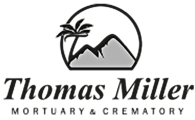How “The Mortician” Shook the Funeral Industry — and Why You Can Still Trust Ethical Funeral Homes
When HBO released The Mortician, the documentary sent shockwaves through both the public and the funeral profession. The series revisits the crimes of David Sconce, a California crematory operator in the 1980s whose greed, deception, and utter disregard for human dignity left a lasting stain on the industry’s reputation.
For most of us in funeral service, the show is both infuriating and heartbreaking — because it paints a picture of an industry we know is built on compassion, ethics, and trust.
In Episode 25 of the Dialogues About Death show, Chris Miller of Thomas Miller Mortuary & Crematory (CA) and Kim Hunter of Humphrey Funeral Home (Toronto, Canada) sat down to unpack the documentary, share their own experiences, and explain the safeguards in place today to prevent anything like this from happening again.
The Shocking Story Behind The Mortician
Chris grew up just 40 miles from the Sconce operation. At the time, cremation was far less common in California — only about 25–30% of families chose it — but the headlines from Pasadena still made waves. What the public later learned was horrifying:
- Multiple bodies cremated together
- Disrespect for final wishes
- Theft of gold teeth and body parts
- Selling remains and tissue for profit
- A pattern of greed-driven decisions with zero remorse
Kim, who was already a funeral director in Canada at the time, had never even heard the story until the HBO documentary. Watching it for the first time left him stunned.
“There’s always one bad apple in every industry,” Chris said, “but this guy went above and beyond being terrible.”
How Ethical Funeral Homes Do Things Differently
Both Chris and Kim made it clear: reputable funeral homes operate under strict checks, balances, and ethical codes.
Identification and Tracking:
- Families can request to witness cremations.
- Metal ID coins with unique numbers accompany each set of remains from start to finish.
- In Chris’s crematory, the process is recorded with 24/7 surveillance for added accountability.
Local Control:
- Many ethical operators own their own crematories rather than outsourcing to third parties — ensuring respectful care stays in trusted hands.
Community Trust:
- Regulations and inspections keep funeral homes accountable.
- In California, the Cemetery and Funeral Bureau inspects annually.
- In Ontario, the Bereavement Authority of Ontario (BAO) oversees funeral homes, cemeteries, and crematories.
Why Reputation and Relationships Matter
Kim stressed the importance of being visible and active in the community: “When people can put a face to the name, it builds comfort and trust.”
Chris agreed, adding that transparency is key: “We have a cremation bill of rights we review with families so they know exactly how their loved one will be cared for.”
Both leaders are members — and past presidents — of The Order of the Golden Rule (OGR), an international association of independently owned funeral homes committed to the highest ethical standards. Membership isn’t just a badge — it’s a promise.
Protecting the Dignity of the Departed
The documentary understandably makes some families nervous about cremation. Kim and Chris encourage asking questions, visiting facilities, and — if you wish — witnessing the process. The goal: peace of mind during an already difficult time.
“The truth is, 99% of funeral professionals are doing it right,” Chris said. “But you should always choose a provider you trust — preferably one with a proven ethical track record.”
Kim summed it up: “We’re here to serve families. And that means everything we do is about respect, dignity, and doing the right thing, even when no one is watching.”
Final Thought: If you ever need funeral or cremation services, look for a provider who is transparent, community-focused, and accountable to an organization like OGR. The bad apples may make headlines, but the good ones — the vast majority — quietly serve with honor every single day.
